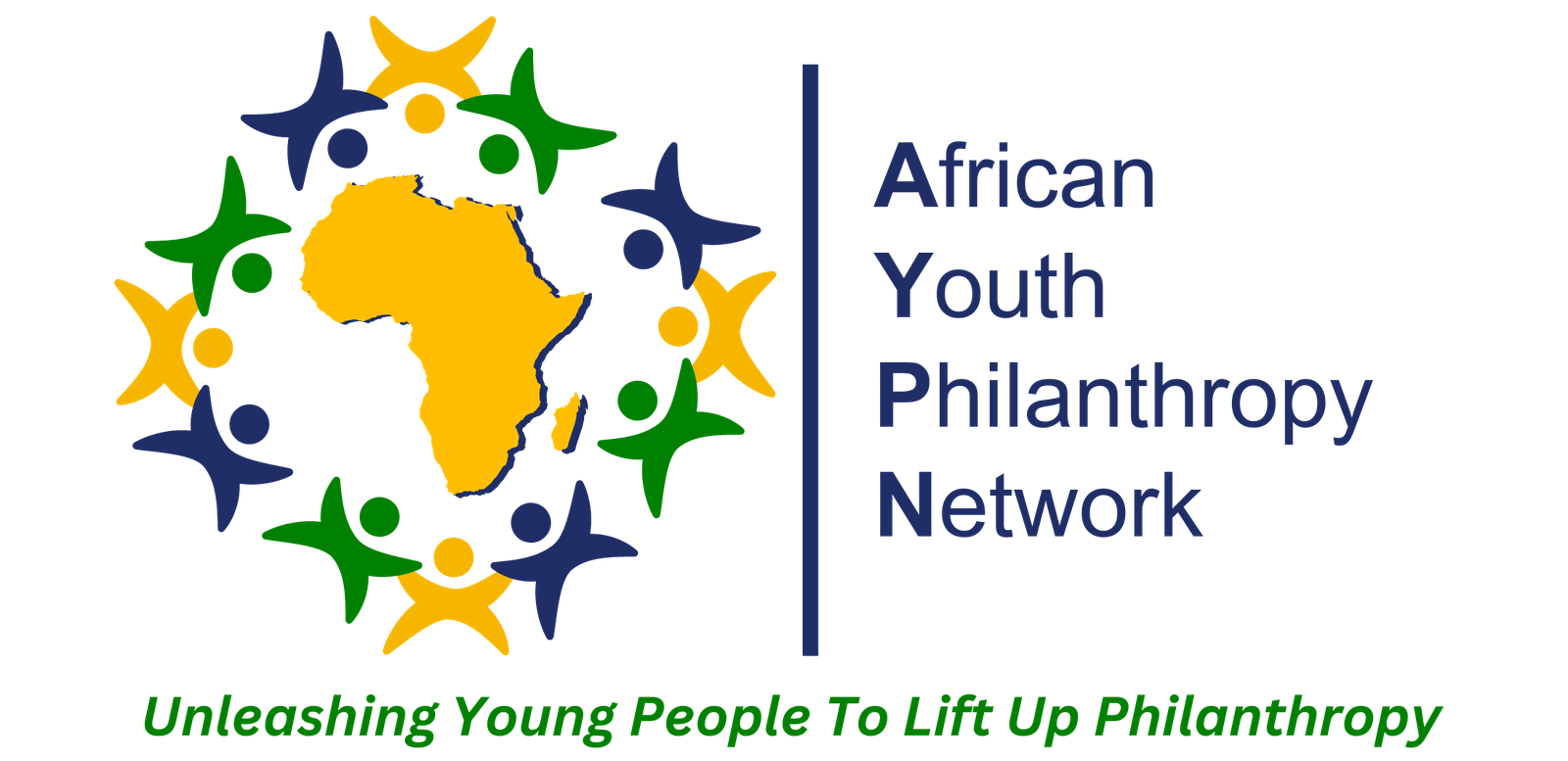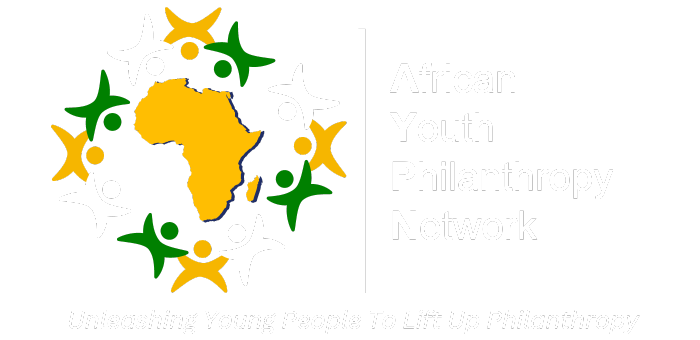Imagine a new kind of philanthropy, where resources aren’t measured solely in financial terms but in time, skills, and collective energy. This is the power of youth-led philanthropy: bold, innovative, and rooted in the belief that everyone has something to give.
Philanthropy is about giving back to society, motivated by a strong desire to create positive change. It stems from compassion, dedication, and the belief that everyone can help improve the lives of others. It’s not just about financial contributions; it’s also about time, skills, and effort. Imagine living in a village where accessing clean water has always been a challenge. One day, a young woman decides to dig a well in her neighbourhood. She doesn’t have millions to donate, but through her hard work, she transforms the lives of those around her. This is the essence of philanthropy—a commitment to making the world a better place, whatever resources you can offer. It is this spirit of giving that creates lasting impact.
The Kenya Connect Breakfast Meeting, held on October 9th at The Heron Hotel in Nairobi, served as a critical platform for engaging young leaders in conversations about youth philanthropy and development in Africa. The event, hosted by the African Youth Philanthropy Network (AYPN) in collaboration with the East Africa Philanthropy Network (EAPN), brought together a dynamic group of individuals passionate about shaping the future of the continent through philanthropic efforts.
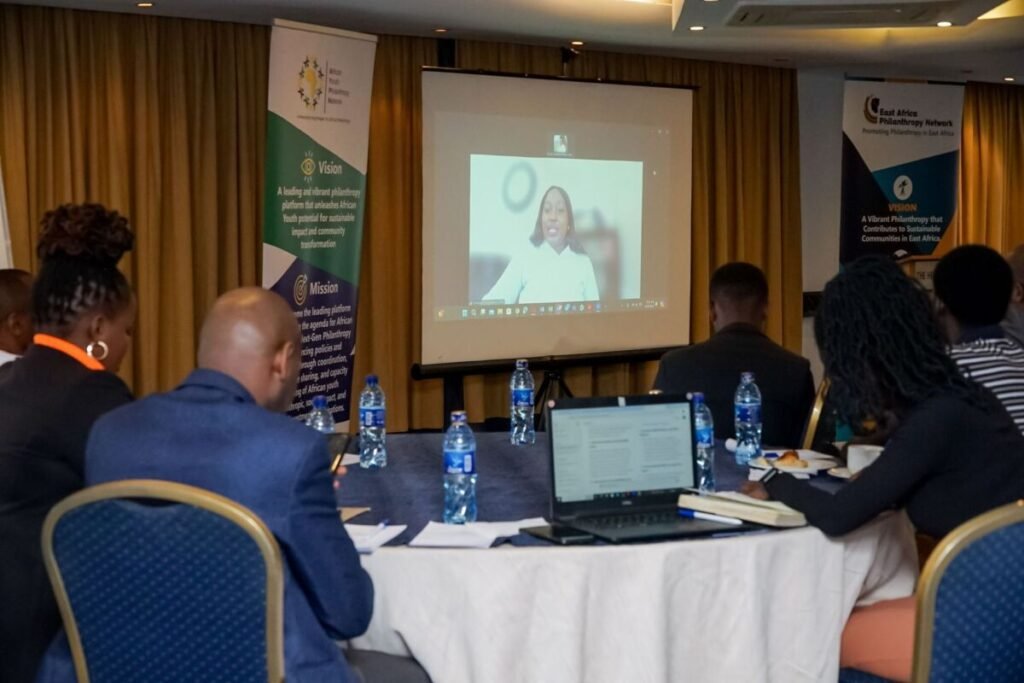
Thembekile Maseko, AYPN-Executive Director.
Thembekile Maseko, the Executive Director of AYPN, joined the meeting virtually from Johannesburg, South Africa, to deliver the welcoming remarks. She emphasized the crucial role young people play in driving development and how AYPN fosters a network for knowledge sharing and collaboration. Maseko underscored the power of youth as the driving force behind change, stressing that building strong networks is essential for leveraging the collective impact of youth-led initiatives.
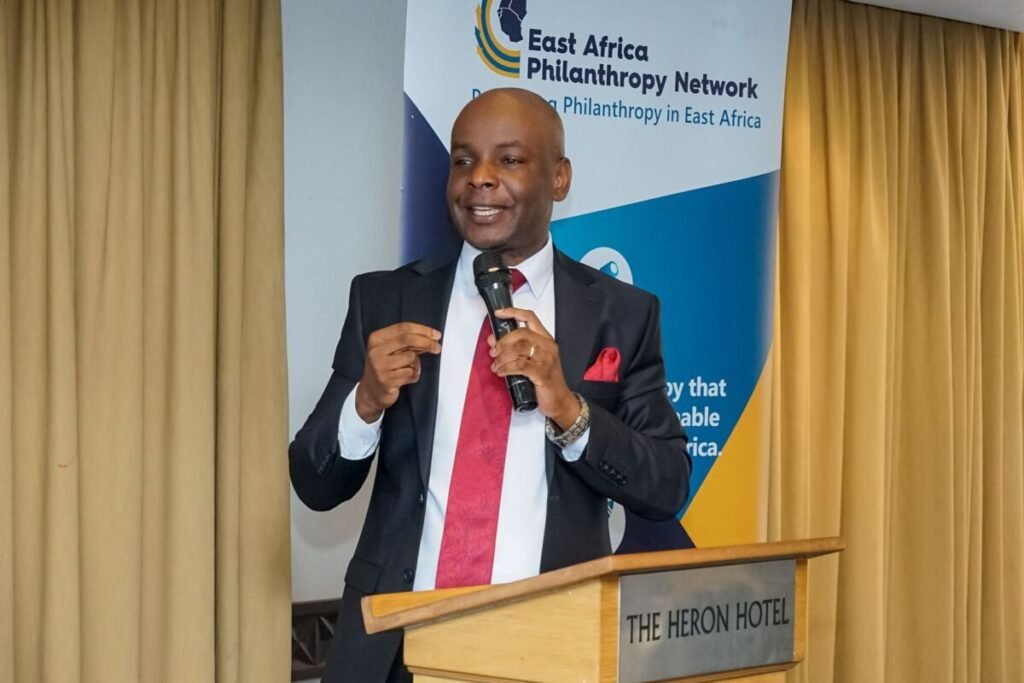
Evans Okinyi – The CEO of EAPN.
In his opening address, Evans Okinyi, Chairperson of the AYPN Board and CEO of EAPN, highlighted the necessity of adopting an ecosystem approach in philanthropy. He stressed the importance of collaboration and honouring commitments, urging attendees to rethink their approach to development. Okinyi shared a powerful statistic: by 2050, over 75% of Africa’s population will be comprised of youth. He warned that this demographic shift could either serve as a transformative opportunity for prosperity or become a ticking time bomb if not adequately addressed. To secure long-term development, he called for the creation of opportunities for youth in various sectors and emphasized the need to include young people in decision-making processes.
Mercy Murigi, a board member of AYPN, enriched the discussion by outlining three key principles essential for youth-led philanthropy: trust, patience, and the mindset of giving and receiving value. She encouraged stakeholders to adopt these values to create more inclusive and impactful development strategies that are centered around youth involvement.
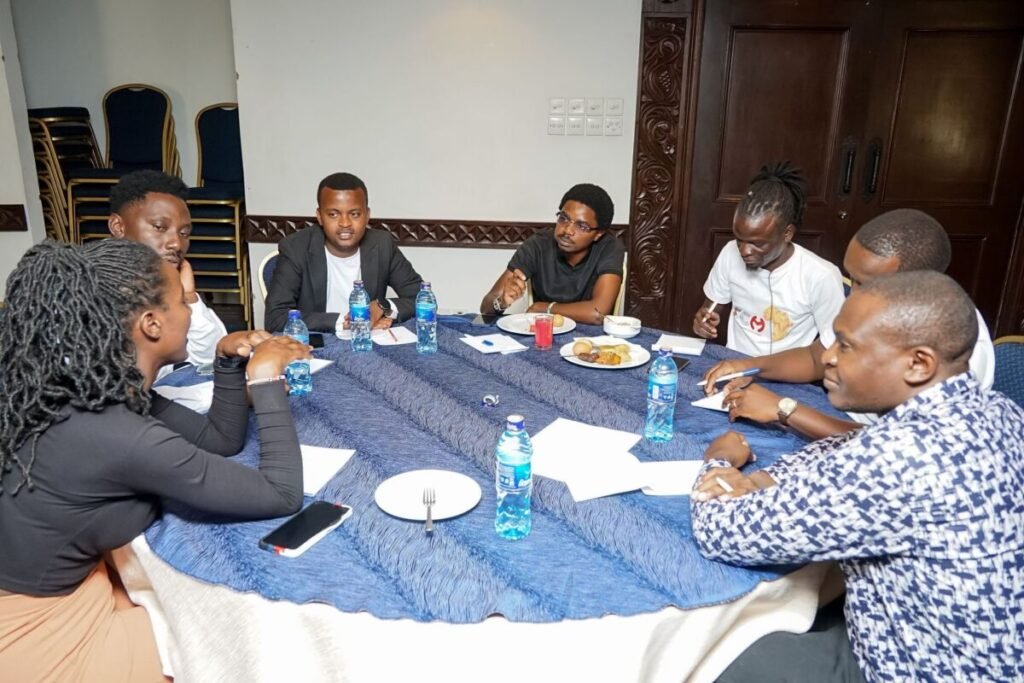
Kenya Connect Breakfast Meeting.
The second session of the Kenya Connect Breakfast Meeting featured an interactive roundtable discussion, where participants networked and exchanged ideas. This session focused on exploring the challenges hindering youth-led philanthropy and identifying innovative strategies to overcome these barriers.
Addressing Challenges in Youth Philanthropy
Participants at the meeting highlighted several obstacles facing youth philanthropy. A primary concern was inadequate preparation for securing funding and the lack of essential skills such as proposal writing and donor engagement. Many youth-led startup organizations struggle to access funding because they lack the necessary training opportunities to refine these skills. Additionally, these organizations often do not have the resources to hire experienced staff or invest in management software crucial for effective project execution.
The participants emphasized the importance of peer and strategic networking as a way to overcome these barriers. They encouraged young leaders to engage in partnerships that offer mutual value, complement each other’s efforts, and foster a collaborative philanthropic ecosystem.
Another critical challenge discussed was the lack of community ownership in donor-funded projects, which often leads to minimal impact. Many projects are developed without sufficient involvement from the communities they aim to serve, leading to initiatives that fail to address the actual needs of the people. To combat this, participants proposed enhancing dialogue between donors and community members to ensure that projects are aligned with local priorities and have a lasting, meaningful impact.
The group also addressed the issue of resource prioritization from the Global North. It was noted that many philanthropic efforts in Africa are driven by funding and resources from external donors, which can sometimes overshadow local initiatives. To counter this, participants suggested advocating for local philanthropic efforts that empower community members to take ownership of their development.
Exploring Opportunities and Innovative Strategies
In the increasingly interconnected world, technology offers young people unprecedented access to resources that can help them enhance their philanthropic efforts. Participants discussed the wealth of online resources available, such as journals, eBooks, and instructional videos on platforms like YouTube. Additionally, virtual communication tools like Zoom, Google Meet, and Skype allow young people to engage in conversations with peers across the globe, enabling them to learn from successful projects in other regions and adapt these strategies to fit their own contexts.

The rise of smartphones has also made it easier and more cost-effective for young people to document and share the impact of their projects. In the past, project reporting was a costly endeavour, requiring the hiring of professional photographers and videographers. Today, however, modern smartphones come equipped with high-quality cameras and editing software, enabling young leaders to create compelling narratives that effectively communicate their impact to stakeholders and donors.
Participants also encouraged young leaders to view mistakes as learning opportunities. They were urged to ask questions without fear, seek mentorship from experienced leaders, and continually refine their strategies. The energy and enthusiasm of youth were seen as significant assets in the philanthropic space, as this vibrancy—combined with innovative thinking—positions them well to drive impactful change within their communities.
Conclusion
The Kenya Connect Breakfast Meeting highlighted the transformative potential of youth-led philanthropy in driving Africa’s development. Key takeaways from the event included the need for enhanced training in proposal writing and donor engagement, the importance of fostering community ownership in donor-funded projects, and the critical role that technology can play in amplifying the efforts of young philanthropists. Participants were encouraged to leverage global networks, embrace learning from mistakes, and tap into the inherent energy and enthusiasm of youth to drive sustainable change.

For individuals or organizations interested in joining this movement, the Africa Youth Philanthropy Network (AYPN) offers three distinct tiers of engagement. The first is for Allies with General Access, who can benefit from knowledge sharing, networking opportunities, and the chance to participate in discussions that shape the future of youth philanthropy in Africa.
For those seeking a more significant role, Contributors as Strategic Partners engage in deeper collaboration, contributing to strategy development and project execution. This fosters mutual growth and strengthens the philanthropic ecosystem.
Lastly, Catalysts as Investors are individuals or organizations prepared to make substantial financial or resource investments. Catalysts can shape large-scale initiatives and drive long-term impact by supporting youth-led projects that address Africa’s most pressing challenges.
Through these tiers of engagement, AYPN provides multiple pathways for involvement, ensuring that participants can contribute meaningfully, whether through shared knowledge, strategic partnership, or direct investment.
By adopting an ecosystem approach, embracing collaboration, and empowering youth, the future of philanthropy in Africa can be reimagined as a force for sustainable development and social transformation.
Edited by Pius Okore.
